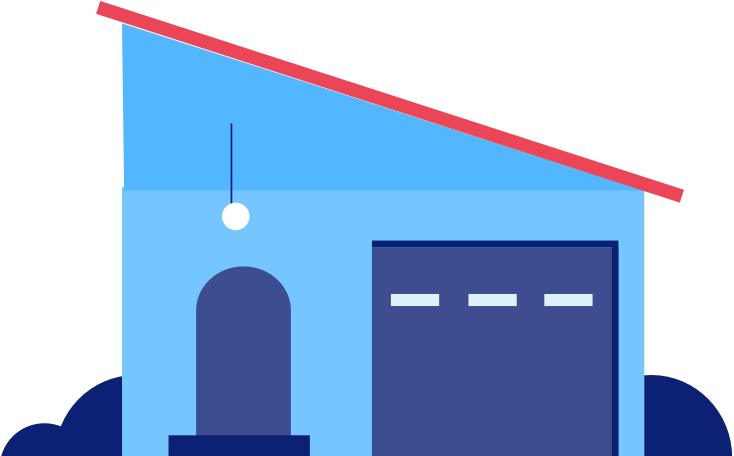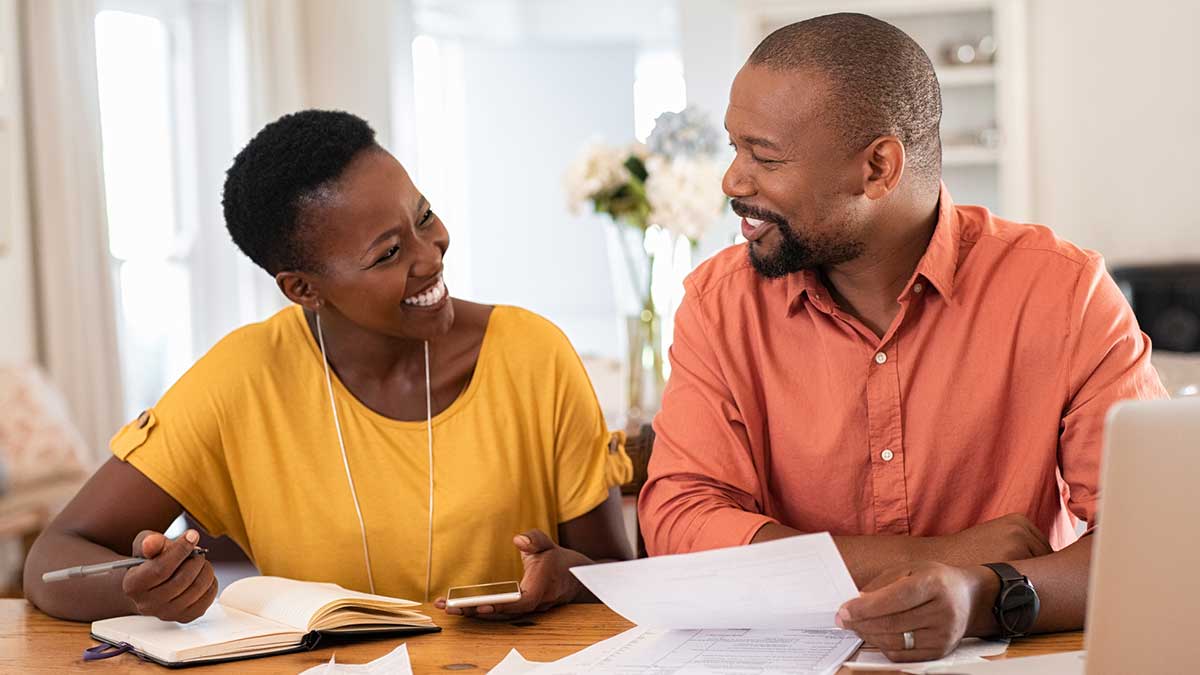6-min read

Hooray! You’ve made it to the final step in the home-buying process – the closing. On closing day, you’ll sign the final paperwork, pay any closing costs that may be due and get the keys to your new home. Wait. Closing costs? If you’re not expecting them, these fees may come as a surprise. Let’s look at some of the most common types of closing costs and how you can prepare for them.
What are closing costs?
Closing costs are the fees and expenses you pay when you close on your home. They include standard expenses such as appraisal fees, title fees and the first year of your homeowner’s insurance. But, depending on your specific loan and state requirements, there could be other costs as well.
How to calculate closing costs
While you won’t get an exact dollar amount by calculating your closing costs, it will give you a general idea of what to plan for. Typically, you can expect between 2% and 5% of the loan amount. So, on a $250,000 home purchase, you could pay between $5,000 and $12,500 in closing costs. Your mortgage loan officer can help you figure out the best way to cover these costs.
Closing costs can vary significantly, but two important documents can give you an estimate of how much you’ll need to bring to the table on closing day. Early in the mortgage application process you’ll receive a Loan Estimate (LE) showing your estimated closing costs. By law, lenders must provide this itemized list of closing costs to you within three business days of submitting your mortgage application. The LE will give you your first glimpse at the closing costs you’ll encounter.
At least three business days before closing you’ll receive a Closing Disclosure (CD) from your lender. It includes the loan terms, your projected monthly payments and your final closing costs. Review this document carefully, especially the funds you need to bring to closing, and if you have any questions, ask your lender.
Who pays closing costs?
Usually both parties will have closing costs to pay. But you can negotiate to have the seller pay a portion of your closing costs. Known as seller concessions, this may be helpful if you think you'll have trouble covering all of your closing costs. It could also be useful if the home inspection uncovers issues that are going to cost money to fix. In a buyer’s market (when homes are slow to sell), a seller may be willing to negotiate to make the purchase more attractive. In a seller’s market (when homes are selling quickly), it’s less likely a seller will agree to pay part of your closing costs.
What’s included in closing costs?
You may be wondering if closing costs, earnest money and your down payment are the same thing. They’re not. But each play a key role in your home purchase.
Closing costs
Closing costs cover fees, taxes and administrative expenses related to buying your new home (we’ll cover more on this in a moment). These expenses vary depending on the cost of your home, your specific loan and state laws. And as we mentioned, you may be able to negotiate with the seller to pay a portion of your closing costs as well.
Earnest money
Earnest money is usually paid up front when you make your “offer to purchase.” It's deposited into an escrow account within a few days of the seller accepting your offer and tells the seller you’re serious about buying their home. If you follow through with the contract, the money will be applied to your purchase as part of your closing costs. If you break the terms of the contract, you risk forfeiting the money to the seller.
Down payment
Your down payment is a part of the cost of the home that represents your initial investment in the home. And while you may have heard that 20% down is standard, that’s not necessarily true. There are mortgage options that allow for a down payment of less than 20%. Like closing costs, your down payment is also paid at closing.

Your application can help you prepare for closing costs.
We’ll confirm your personal and financial information, pull your credit report, and then a mortgage loan officer will connect with you about the results.
How much are closing costs for the buyer?
Closing costs vary depending on where you’re buying your home, the home itself and the type of loan you choose. Here's a list of some common fees you may need to pay when closing. While it’s not intended to be all-inclusive, this list reflects what is generally required of homebuyers.
Property-related fees
- Appraisal fee: A valuation of the property should confirm the home’s value aligns with the purchase price.
- Home inspection: The home inspection verifies the condition of the property. It can also uncover problems with the home that need attention before closing.
- Recording fee: Your local city or county government requires a recording fee to update public land ownership records.
- Transfer tax: When your local government updates your home’s title and transfers it to you, you’ll pay a transfer tax fee. This fee varies depending on where you live.
Taxes and insurance
- Homeowners insurance: A type of protection that compensates you if your home gets damaged. Often, lenders require this as a condition of your loan.
- Private mortgage insurance (PMI): Depending on the type of loan you choose and the amount of your down payment, you may have to pay PMI. PMI protects the lender against any loss if you fail to pay your mortgage.
- Property taxes: The buyer usually pays the city and county property taxes due from the date of closing through the end of the tax year at closing.
Loan-related fees
- Application fee: This is a fee to process your application.
- Attorney fees: Although not required in all states, this covers the cost of an attorney reviewing the closing documents on behalf of the buyer or the lender.
- Credit reporting fee: This fee is for pulling your credit score and report.
- Mortgage points: Also known as discount points, mortgage points are a form of prepaid interest. You can choose to pay a percentage of the interest up front to lower your interest rate and monthly payment. A mortgage point is equal to 1% of your total loan amount, so on a $250,000 loan, one point would be $2,500.
- Loan origination fee: This fee covers the cost of processing your loan.
- Prepaid interest: You may have to pay any interest that accrues on the loan between the closing date and your first mortgage payment upfront.
Title fees
- Title search or title examination: This fee goes to the title search company for verifying there are no liens, claims, unpaid taxes, judgments or unpaid Homeowners Association (HOA) dues on the property.
- Lender’s title insurance: A lender’s title insurance policy protects your lender’s interest in the property.
How much are closing costs for the seller?
As we mentioned, buyers aren’t the only ones who will pay closing costs. Let’s take a look at some of the common closing costs for sellers.
Property-related fees
- Homeowners Association fees: Any HOA fees get paid by the seller through the closing date.
- Real estate agent commission: The seller will typically pay for both the buyer’s and the seller’s real estate agent commissions.
- Recording fees: Depending on the state, the seller may be responsible for covering recording fees associated with the change of ownership.
- Transfer tax: A cost that’s usually paid for by the seller to transfer the title of the home to the new owner.
Taxes and insurance
- Prorated property taxes: Property taxes that accumulate up to the date of the sale are the responsibility of the seller.
- Owner’s title insurance: To protect the buyer from issues with the home’s title, the seller sometimes pays for owner’s title insurance. This one-time purchase is good for as long as the buyer owns the home.
Miscellaneous fees
- Attorney fees: If an attorney assists the seller with the sale of their home, they will be responsible for paying the attorney fees on closing day.
- Escrow fees: Often, the buyer and seller share this fee. It covers the cost of the escrow company’s services for transferring ownership of the property.
- Credits toward closing costs: A seller can sweeten the deal by offering to cover some of the buyer’s closing costs. This credit lowers the amount of cash the buyer needs to close on the home.
When are closing costs due?
Closing costs get paid at closing. You can work with your closing agent to determine which types of payment are acceptable. Typically, you’re asked to bring a cashier’s check and a photo ID. Once you’ve signed the final paperwork and paid your down payment and closing costs, your loan closes, and you’ll get the keys to your new home.
Closing costs can come as a surprise if you’re not expecting them – especially if you’re a first-time buyer. The fees and expenses can add up quickly. But now that you know some of the most common types of closing costs and how you can prepare for them, you’re ready to close with confidence. And we’re here to help you along the way.

Let’s get you closer to your new home.
An experienced mortgage loan officer is just a phone call or email away, with answers for just about any home-buying question.
Related topics

What is an escrow account?
Explore the basics of escrow accounts.

What are mortgage points?
See if “buying points” is right for you.

Home-buying and mortgage process
Learn more about buying a home.
